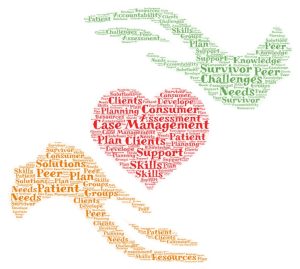2.17 Key Terms Study Guide

The material in this chapter are the core of being an effective Case Manager. Once you understand the important knowledge base, skills and guidelines for case management you will have a solid foundation for understanding how to be an effective case manager. You may be familiar with these terms, but If you are not familiar with the terms below, I recommend you download this study sheet, add more spaces to write in definitions and relevant information (or make flashcards) as you read the chapter and watch videos.
- Anti-Oppressive Practice
- Anti-Racism
- Biological Theory
- Biological Dimension
- Biopsychosocial Plus Model
- Case manager
- Client
- Closure, Terminating the Case
- Consumer
- Correctional / Incarcerated
- Cultural Competence
- Cultural Dimension
- Drug Treatment Court (DTC)
- Ecological Framework
- Ecological Model – Micro, Meso & Maco Levels
- Families
- Harm Reduction
- Independence
- Indigenous
- Indigenous Worldviews
- Individuals
- Interviewing Skills
- MAP (Managed Alcohol Prevention)
- MMT (Methadone Maintenance Treatment)
- Monitoring
- Patient
- Peer
- Populations
- Psychological Dimension
- Resources
- Service Plan
- Screening & Assessment
- Seniors
- Skills
- Social Histories
- Social Dimension
- Spiritual Dimension
- Suboxone
- Support
- Systems Theory
- Withdrawal Management

